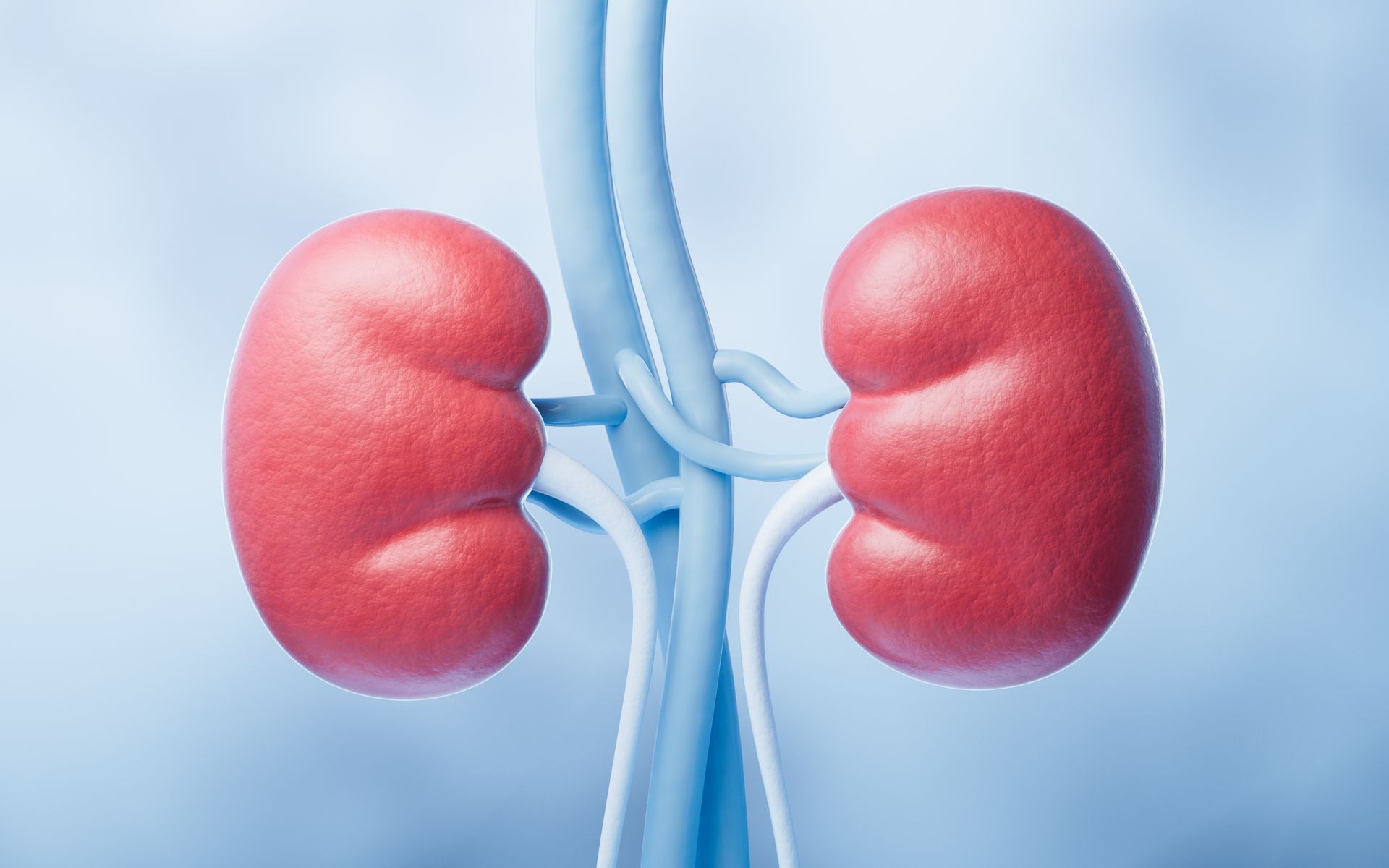Mounjaro for prediabetes: can this weight loss injection help?
Ready to start your weight loss journey? Download the free SemaPen app and find out if you're eligible in minutes.
What is prediabetes – and can Mounjaro help treat or reverse it? Get the facts in our expert guide.

Maintaining a healthy weight is one of the best ways to treat and prevent type 2 diabetes.
With a balanced diet and regular exercise, people living with type 2 diabetes can better manage their symptoms. And for those at risk of developing diabetes, it can mean staving off the disease for longer – or even entirely.
And now, with the arrival of a new generation of weight loss medications – including Mounjaro – patients and clinicians have another tool in their toolbox. Mounjaro was developed to help people with type 2 diabetes manage their blood sugar levels but is also highly effective as a weight loss treatment.
It all seems to add up. By helping to manage weight and blood sugar, could Mounjaro be a lifeline for people at risk of developing diabetes?
The answer, by all accounts, is a resounding 'yes'. Research suggests that sustained treatment with Mounjaro can cut the risk of developing diabetes by 94% for people who are already at risk.
To understand why, we have to go back to basics. First, we'll look at prediabetes and what it means to be at risk of developing diabetes. Then, we'll cover how Mounjaro works and how it can help.
What is prediabetes?
When a person has type 2 diabetes, it means they can't control their blood sugar levels properly. This can lead to a condition called 'hyperglycaemia' (high blood sugar), which in turn can cause serious health problems if left untreated.
People with prediabetes have blood sugar levels that are higher than normal – but not high enough to classify as type 2 diabetes. If you have prediabetes, you're at risk of developing full-blown diabetes.
Prediabetes often has no symptoms. That's why many people only find out they have prediabetes when they go for a routine checkup with their GP.
What causes prediabetes?
Type 2 diabetes and prediabetes are caused by a breakdown in how the body uses insulin, resistance to insulin itself or a combination of both.
Insulin is a hormone that helps the body regulate blood sugar levels. When we have type 2 diabetes or prediabetes, our bodies stop responding to insulin in a normal way. This causes blood sugar levels to rise.
What are the risk factors for prediabetes?
Obesity is one of the main risk factors for prediabetes and type 2 diabetes. People who are living with obesity are seven times more likely to develop type 2 diabetes. For those who are overweight, the risk is three times greater than normal.²
Other risk factors include:
- Age – the risk increases as you get older
- Having a family history of type 2 diabetes
- Having high blood pressure
- Being of South Asian, African-Caribbean or Black African descent
How is prediabetes treated?
Prediabetes is a warning sign for type 2 diabetes. However, this doesn't mean that developing diabetes is inevitable.
With effective treatment, people with prediabetes can delay the onset of type 2 diabetes or even reverse their symptoms (if they're experiencing any).

Weight loss is one of the most effective treatments. According to a 2007 study, for every kilogram of weight lost, the risk of developing diabetes falls by 16%.
Of course, losing weight isn't easy. It involves lifestyle changes such as a calorie-controlled diet and increased exercise – and sticking with these changes requires a great deal of willpower.
Could weight loss medications like Mounjaro be the helping hand we need?
How can Mounjaro help?
Mounjaro (tirzepatide) is an injectable medication manufactured by the American pharmaceutical company Eli Lilly. It's used to treat type 2 diabetes and can help people living with obesity to lose weight.
- As an obesity treatment, Mounjaro typically results in patients losing around 21% of their starting body weight.
- In a clinical trial looking at people with type 2 diabetes, Mounjaro showed 'robust improvements in [blood sugar] control'.
Mounjaro has several effects on the body. It slows down the rate of digestion, helps us feel full for longer and reduces food cravings. These effects can help users manage how much they eat and, with a steady diet and exercise plan, lose weight.
It also helps the body regulate blood sugar levels and use insulin properly. It makes the pancreas release more insulin when it needs to – and it stops your liver from releasing insulin into the bloodstream.
We know that losing weight is an effective way to delay or reverse the onset of type 2 diabetes. This is one way that Mounjaro can help those at risk. As a proven and effective weight loss drug, it can give users a helping hand in their efforts to manage their weight and stave off diabetes.
But other factors may be at play – including, potentially, Mounjaro's effects on blood sugar control. Certainly, it appears that Mounjaro is more effective at preventing diabetes than traditional weight loss therapies such as diet and exercise alone.
How effective is it?
In an extension to its landmark SURMOUNT-1 trial, Eli Lilly sought to learn just how effective Mounjaro could be in preventing type 2 diabetes.
The study involved 1,032 participants living with obesity and prediabetes. The participants were randomly assigned treatment with tirzepatide or a placebo (dummy drug). All participants also undertook lifestyle changes, including changes to their diet and physical routine.
The results were extraordinary. After 176 weeks, almost 99% of the participants treated with tirzepatide remained diabetes-free. This translates to a 94% reduction in the risk of developing type 2 diabetes.
The tirzepatide group also saw a sustained 23% weight loss over the three-year treatment period. Researchers estimated that this weight loss could take about 50% of the credit for delaying the onset of type 2 diabetes. The other 50%, they said, could 'potentially [be] attributed to the other effects of tirzepatide'.
Are you living with prediabetes and want help managing your weight? SemaPen's affordable weight loss programmes might be right for you. Why not take our simple online consultation to find out whether you're eligible?
Sources
2. Abdullah, A. et al. (2010) " The magnitude of association between overweight and obesity and the risk of diabetes: a meta-analysis of prospective cohort studies" Diabetes Research and Clinical Practice, 89(3) https://doi.org/10.1016/j.diabres.2010.04.012
3. Hamman, R.F. et al. (2007) "Effect of Weight Loss With Lifestyle Intervention on Risk of Diabetes" Diabetes Care, 29(9) https://doi.org/10.2337/dc06-0560
4. Jastreboff, A.M. et al. (2022) "Tirzepatide Once Weekly for the Treatment of Obesity" The New England Journal of Medicine, 387(3) https://doi.org/10.1056/NEJMoa2206038
5. Rosenstock, J. et al. (2021) "Efficacy and safety of a novel dual GIP and GLP-1 receptor agonist tirzepatide in patients with type 2 diabetes (SURPASS-1): a double-blind, randomised, phase 3 trial" The Lancet, 398(10295) https://doi.org/10.1016/S0140-6736(21)01324-6
6. Jastreboff, A.M. et al. (2024) "Tirzepatide for Obesity Treatment and Diabetes Prevention" The New England Journal of Medicine, 392(10) https://doi.org/10.1056/NEJMoa2410819
This article was reviewed and approved by Alice Fletcher, Lead Bariatric Dietician, and Lujain Alhassan, Bariatric Nutritionist, on 20 May 2025.
- Average 15–21% weight loss
- Trusted programmes built by UK experts
- Personalised advice and support
- Smart weight loss app to track progress and learn positive habits
Your journey starts in the app
Unlock tailored support, weight tracking and more.
1
Download the free app
2
Take your digital consultation
3
Start your programme












